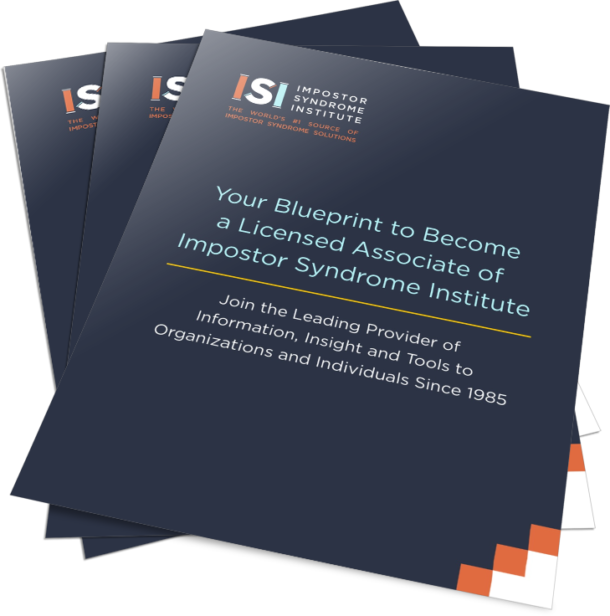If you lead, manage, mentor, train, or coach people you need to understand impostor syndrome.
HERE’S WHAT WE’VE BEEN SAYING FOR 40 YEARS:
Impostor syndrome has been over-psychologized
There are societal, situational, occupational, familial, and organizational sources of impostor feelings. Seeing our lived experience in a broader context helps us to contextualize more and personalize less.
Impostor syndrome intersects with DE&I
A sense of belonging fosters confidence. Being among the “few, only, or first” compounds the pressure to represent one’s entire group. Societal stereotypes and stereotype threat based on gender, race, age, language, class, and/or dis/ability increase susceptibility to impostor feelings.
Impostor syndrome is costly to individuals and organizations
It’s not just an “interesting self-help topic” — it’s a bottom line issue. Impostor-related thoughts and feelings lead to unproductive behaviors which are costly to individuals and their organization.
Impostor syndrome demands immediately usable solutions
The goal is not to “fix” anyone. Rather it’s to provide the information, insight, and tools needed to effectively address normal impostor feelings and help those understand the signs of the impostor phenomenon. Importantly, these same tools can be applied at both the employee and organizational level.
COSTS OF IMPOSTOR SYNDROME
Employees who experience impostor syndrome are more likely to:
Hold back from sharing ideas, asking questions
Not step up for more challenging opportunities or assignments
Be overlooked for promotions
Over-personalize constructive feedback
Procrastinate on important projects and tasks
Job hop or otherwise sabotage their success
Over work and over prepare
Burnout due to unnecessary psychological stress and fatigue

The Costs and consequences to Your Organization:
Receive fewer ideas and solutions
Lose opportunities
Avoidable crisis for individual employees
Avoidable crisis for team members
Reduced talent pool
Turnover that results in costly hiring searches read more…
Wasted time and productivity

OUR SOLUTION
Impostor Syndrome Institute (ISI) is the world’s #1 source of impostor syndrome solutions and has been the foremost provider of practical and immediately usable information, insight and tools to organizations & individuals since 1982.
Rethinking Impostor Syndrome™ (RIS) is ISI’s proven educational solution developed by Dr. Valerie Young and has been delivered to over half a million people around the world including:
RETHINKING IMPOSTOR SYNDROME™ IN THE WORKPLACE
The Impostor Syndrome Informed Leader: Coaching Employees & Teams
This program answers the #1 question we hear from leaders, managers, and mentors: What can managers do to help employees who experience the impostor phenomenon?
Rethinking Impostor Syndrome™ for HR & Talent Management
Retaining and advancing high-potential talent — especially among diverse groups — is an organizational priority. Our goal is to eliminate the feelings of imposter syndrome at work across every department and foster confidence in talented individuals.
Explore Impostor Syndrome Solutions For Your Team or Organization
Partner with the leading provider of information, insight and tools to organizations and individuals since 1982
















